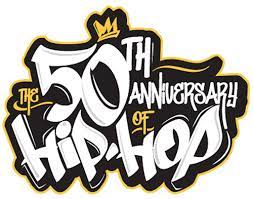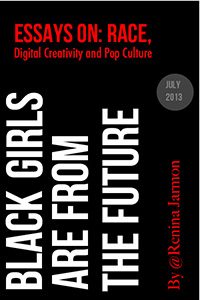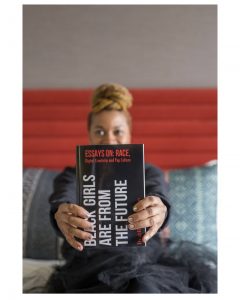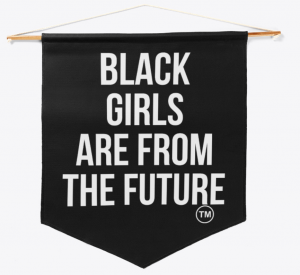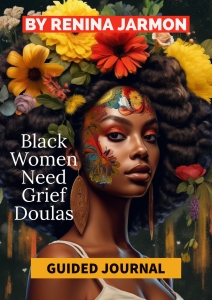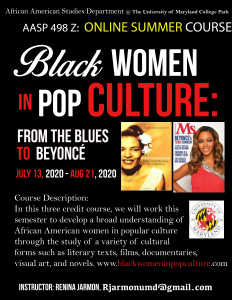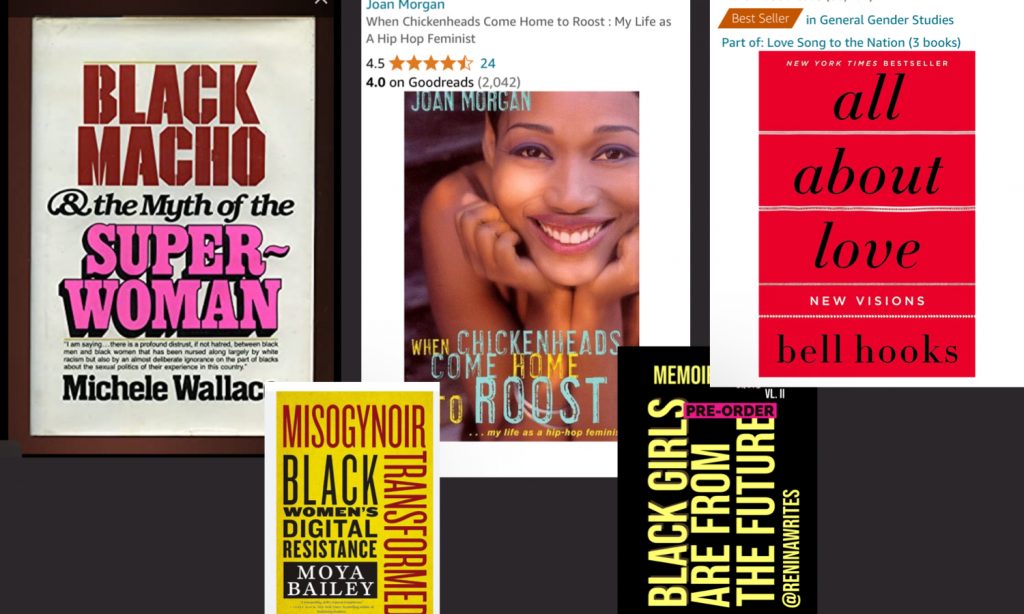
Dedicated to the legacy of prof. bell hooks. Happy Mother’s Day.
This essay will be available in Black Girls Are From the Future VL II. Pre-order here.
Sign up for my newsletter here. Sign up to receive future essays directly to your inbox here.
Last week I watched with curiosity as rap music discourse seemed to approach what I call the “All About Love” moment. The All About Love moment is when a person or a group of people confronts the staggering realization that love and abuse cannot exist in the same relationship. In All About Love prof. bell hooks (RIP) argues that someone cannot love you and abuse you at the same time. People tend to have a hard time with this concept for good reason.
People have a hard time with this because it forces you to either roll your eyes and ignore her OR confront the fact that someone who abuses you and claims to love you is running game on you.
So what is a colored girl to do?
There has always been a tension between how Black women have been treated in rap music, and Black women’s desires to be included and acknowledge in rap music and hip hop culture. We been here. There is no hip culture without us. Will always be here, the question is at what cost?
I honestly did not plan on saying anything about this, as I feel that it is up to the current generation to make sense of Black gender politics. I blogged about rap and feminism for years, and my stance has been it is now time for the younger generation. It is their time to figure out their questions, their answers.
BUT. I had too when I saw someone imply that “well rappers were youth” as if to explain away the misogynoir. Peace to Moya Bailey. Misogynoir is a choice, just like White Supremacy. Tighten up. When I saw that someone said “well rappers were youth” I asked does being young give an emcee the right to ignore violence against Black women? Being violent towards Black women is a rites of passage? Oh Word? Where they do that at?
If the issue was race rather than gender, there would be more of an honest engagement.
I was a Black girl reading bell hooks and The Source. I was young. I was there. I was outside. I also had no choice BUT to acknowledge the fact that I was a Black girl in the hood listening to rap music that called me one thousand b-words. Here is the uno reverse. It was also a music that recognized that I was Black from the hood, and that I mattered in a world that said I didn’t. So rap music said that I was Black and young and important despite being from East Oakland California.
The Black feminists said ahght, aght, aght, just because you are a Black girl, nobody got the right to abuse you, we don’t care who they are.
It was tricky.
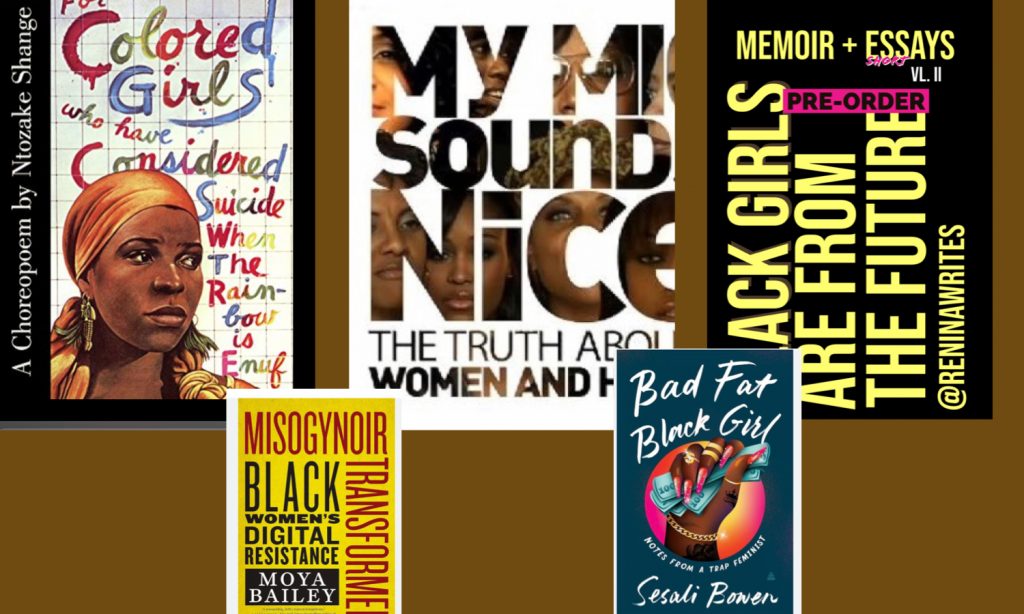
The truth is that Black women are to be used and discarded in both rap music, rap music beefs AND in some Black community spaces. Some families. Some schools. Some churches. It can be hard to confront this as a baseline truth but WITL? Historically women and land have been considered the spoils of war, so in this way rap music is part of a broader historical global tradition, at what cost?
How can Black women make the culture and be despised in it at the same time. Ain’t that something? Yet, a whole litany of Black women gave us maps on how to navigate this.
So if Prof. Angela Davis was interviewing Ice Cube in 1992. If 2 Live Crew was fighting supreme court cases over lewd songs and free speech with. If bell hooks was interviewing Kim in 1997. If Joan Morgan was writing “When Chickenheads Come Home to Roost” in 2000. If Moya and the sisters at Spelman was challenging Nelly and Tip Drill in 2004. If the Crunk Feminist Collective was going toe to toe with rappers, academia and errybody from 2010-2013. If I was deep in my Thugs, Feminism and Boombap bag from 2008-2013. If prof. bell hooks was writing fifty-eleven books about Black people, Black masculinity, and love then it was possible to both listen to rap and interrogate how Black women were treated in it. This is settled fact.
In fact, not only did some Black women give us maps but some brothers did too. Kevin Powell was writing about his challenging how he saw sexism is own life in Essence Magazine in 96? 97? The title was “Reflections of a Recovering Misogynist.” The same Powell who wrote the Biggie and Pac covers for Vibe.
Yet, the conversation last week is evidence that some of us listened to the music, clocked the violence and continued to create the culture.
To say “Oh they were youth” is both ahistorical and disrespectful.
It is disrespectful to the legacy of all these Black women culture makers, artists, entertainment industry Black girls, and writers, and to some brothers, to say “well they were young.”
Just say that you think that rappers have a right to disrespect the women around them and go. If somebody calling you a b-word and a h-word every five minutes, then they don’t see you as human. You are just being tolerated. The first step to dehumanizing someone is calling them something other than their name. This is why the All About Love moment is a moment of radioactive confrontation.
We acknowledge that Black women have always had something to say, we was always there and often getting abused on in the music and in our communities. And that’s it. That’s the All About Love moment. Can they love you and abuse you in the same time? Can they abuse you and can you belong in a community with them at the same time? To answer that question is to open the door to other various questions about love in our families and we have a hard time with that for good reason. Most ignore it in order to survive.
It is debilitating to come to the conclusion that someone in fact DID not love you.
Well, last week some Black women on social media were really close to get acknowledging the fact that they are often not only pawns in Black men’s rap wars, but that many of us we live in a day to day culture that says that we are pawns in some Black men’s lives. Here to be traded, discussed, ranked, used and dismissed. Ya’ll see the young men “choose to marry a Black woman or get electrocuted” viral video?
Black women need our communities in order to survive even if members of that community are abusive towards us. This is the heartbreaking and true situation I saw young people grappling with last week. They got close.
I don’t think that many old heads are ever going to admit, if they already don’t, that what is true in the music is also true in some of our homes, churches, and community spaces. But the young people will. They were well on their way to putting two and two together last week. I saw them grappling in real time.
I am proud of us. We have come far, and we have a long way to go. I will tell you this, ten years ago, this conversation would not even have happened on Twitter.
We have Michelle Wallace, bell hooks, Ntozake Shange, Dee Barnes, Drew Dixon, Joan Morgan, dream hampton, Tricia Rose, Moya Baily, The Crunk Feminist Collective, and myself to thank for maps towards love.
This essay will be available in Black Girls Are From the Future VL II. Pre-order here. Thank you for supporting me.
Questions:
Ya’ll think I am wrong? Lmk.
Can someone love you and abuse you?
What did you learn from reading this piece?
You ever had a bell hooks moment?
Am I over simplifying something that is really complicated?
